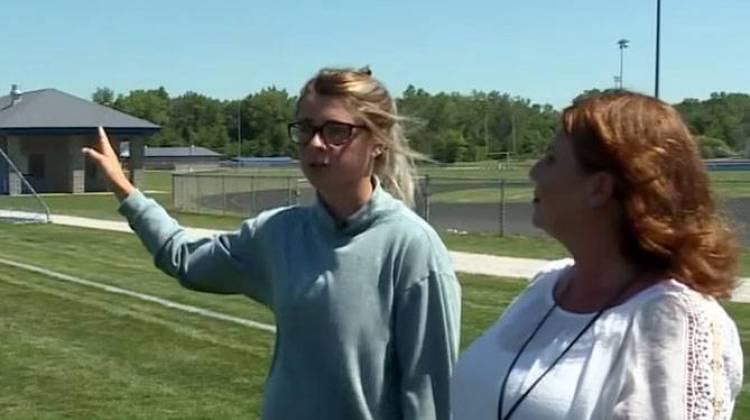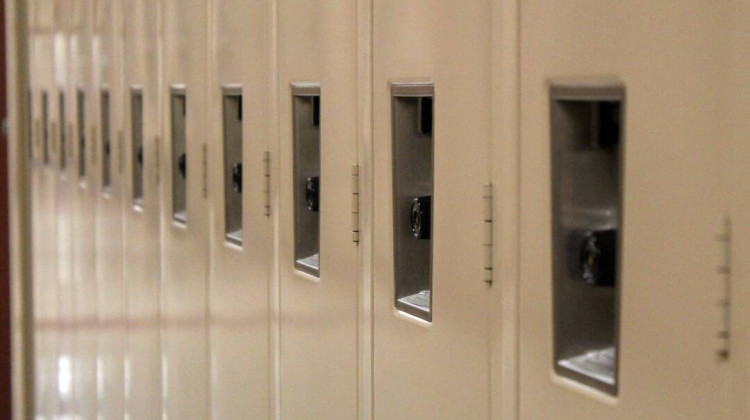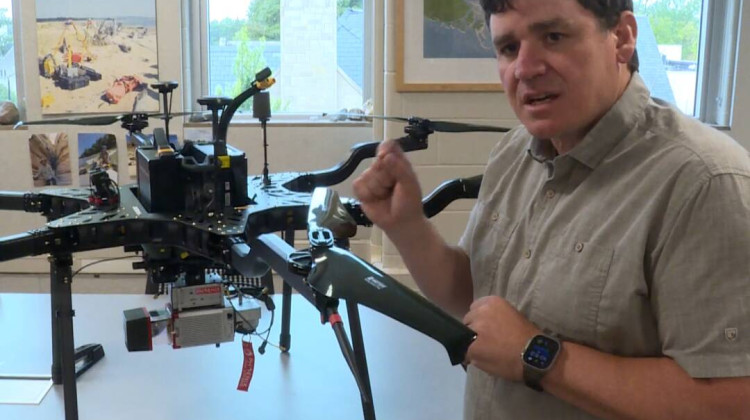
Nicole Klee, left, a junior at Franklin Central High School in Indianapolis, plays soccer, participates in student council and takes several advanced placement classes. She says she doesn't have time to work a part-time job.
James Vavrek/WTIUThere’s no wasted space in Nicole Klee’s locker at Franklin Central High School.
“This is my AP chem binder,” she says. “It doesn’t fully fit because it’s too big.”
Klee, a junior, has a full schedule. She’s a soccer player, participates in student council, and takes several advanced classes.
The course load is trying at times, but it pays off. The 16-year-old is ranked 38th out of more than 700 in her class. But Klee recently wanted to add another thing to her plate, a part-time job.
“I think there’s a lot of people who feel pressure to get jobs so they can pay for a car and go out and do things,” Klee says.
Her parents offer her money, but for Klee, it’s about independence. Ultimately though, it just wasn’t doable. There simply weren’t enough hours in the day.
“You don’t have time for all of that, and you need to pick things that are important to you and things that will help you in the long run,” Klee says. “For me, that was sports and school.”
The challenge is clear. Klee is just too busy. Although some students don’t have an option and need an income or to save for college, studies show Klee isn’t alone.
According to a study, more than 70 percent of adolescents were working jobs in the 1970s. That dropped to around 55 percent in 2014.

Tim Siegert, the director of counseling at Franklin Central, says students are busier than ever and preparing for the next level is getting more rigorous.
“Because those admission standards are getting more stringent, parents are even saying we want you to focus more on taking a heavier course load, focusing more on extracurricular activities whether it be a sport, band, a volunteer service,” Siegert says.
Siegert says there are clear pros and cons to teens working part-time jobs. Colleges are looking for well-rounded students, and working a part-time job shows good time management and discipline, but students can suffer academically.
Data shows college undergraduates who work 20 hours or less are more likely to have a higher grade point average.
“If you work over 20 hours, then it is a challenge,” says Indiana Commissioner for Higher Education Teresa Lubbers. “Less than 20 hours, it may be an advantage.”
Lubbers says the key is balance and that there are other ways besides working a part-time job to acquire the skills college admissions are looking for.
“What you need to do is find a way to distinguish your academic career by other supplemental experiences that say who you are and what you’re committed to doing, and what kind of student or what kind of employee would you be,” Lubbers says.
Klee’s mom, Shane Long, logs a lot of time on the soccer fields watching her daughter play. She says her daughter regularly spends up to 12 hours a day at school, but she’s learning life skills from it.
“She learns respect, she learns multi-tasking, she learns all of those things in school and on the soccer field,” Long says.
Higher education officials say instead of working a job, high school students can try to align their activities with what they want to do in the future. However, it’s rare that someone in high school knows that answer.

 DONATE
DONATE










 Support WFYI. We can't do it without you.
Support WFYI. We can't do it without you.